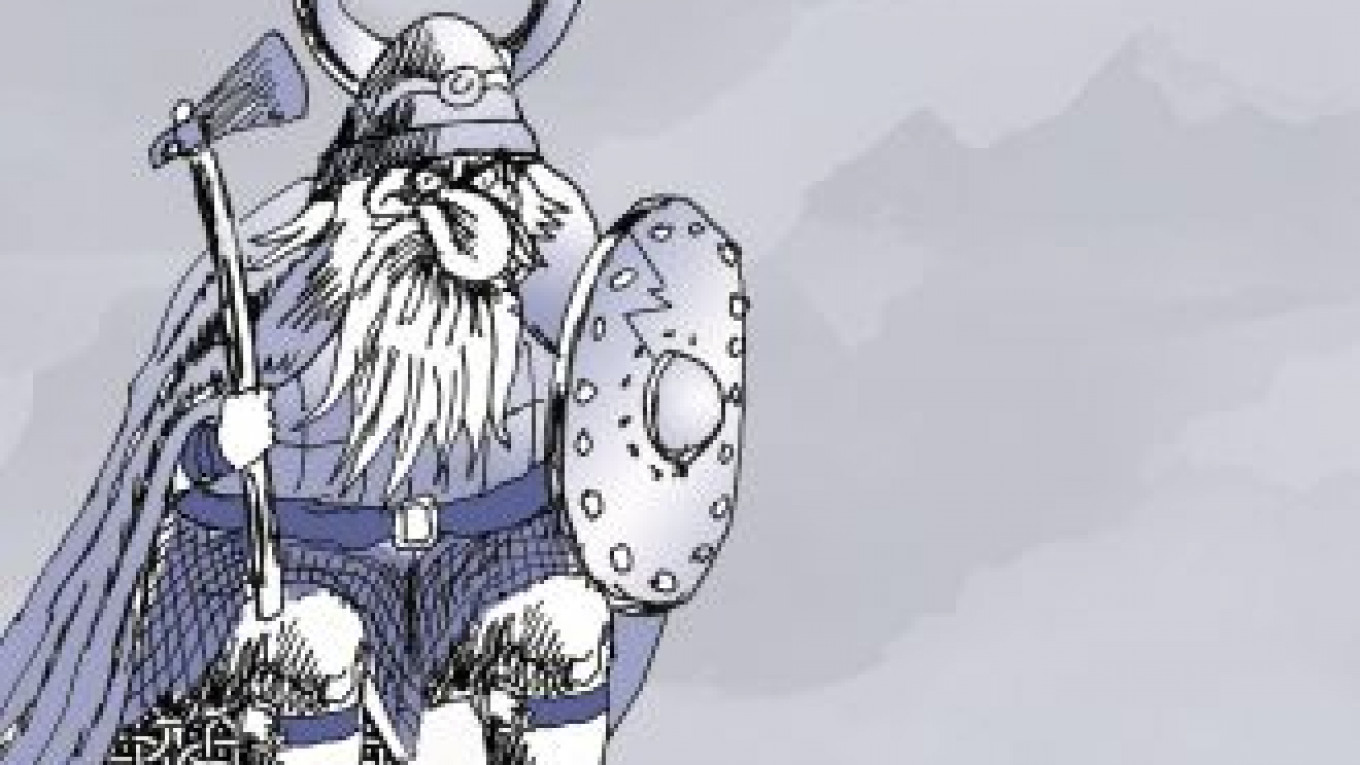The origins of the Russian state and its early history help explain the country’s modern political makeup.
According to the Kievan Primary Chronicle, compiled around 1110, Slavic tribes invited Scandinavian prince Rurik to rule over them in the 9th century. But the history of the Viking expansion in Western Europe suggests that an “invitation” was hardly necessary. In the West, the Vikings began by raiding settlements, pillaging them and dragging their inhabitants off to slavery. They set up outposts to collect tributes, gradually becoming feudal lords. They adopted the local language and customs and eventually melded with the local population.
The Norsemen followed the same pattern in Britain, France and Sicily. The Varangians, as they were known in Russia, became feudal lords and the name of their tribe, the Rus, gave Russia its name just as Normandy was named after the Normans.
Soon Rurik’s descendants and other Varangians adopted the Russian language and merged into Russian society, creating the Russian state. Assimilation occurred in the West as well, but the difference in Russia was that the division between “foreign” rulers and the people was never erased, persisting through the ages. Most of the time, the rulers and the people lived at peace, but in the 16th century, Ivan the Terrible waged a war on his people that was just as brutal as his campaign against the Tatars.
Peter the Great reasserted Russia’s origins as a Viking state by gaining access to the Baltic and establishing St. Petersburg in the land of his ancestors. The new capital has often been referred to by Russian authors as a foreign city. Peter also ushered in a new foreign invasion. Over the next century, Russia had three foreign-born rulers and a steady stream of foreign aristocrats, artisans, farmers and adventurers seeking work, profits and favors from the court.
Of course, the aristocracy and royalty were often foreign in many other countries in Europe. The fact that Russian rulers came from abroad or that in the 19th century the aristocracy spoke mostly French does not mean much. But the Russian people have always shown not only a strange alienation from their rulers, but also a complete disengagement from their state. They have behaved like an occupied nation, never demanding a voice in their own affairs and implicitly recognizing the right of the Varangians to rule. Gentler rulers were never popular. Especially despised were those who tried to find common ground with the people or were “too Russian,” such as Nikita Khrushchev and Mikhail Gorbachev. The most respected leaders were harsh — and frequently foreign, such as Catherine the Great and Josef Stalin.
On the other hand, the only major popular rising in Russian history — the 18th-century Pugachyov rebellion — bore the hallmarks of a war of liberation, with its leader styling himself as a truly Russian tsar.
The Bolshevik regime was established along the same lines. Based on an imported ideology, Marxism, it initially considered Russia a steppingstone toward a worldwide proletarian revolution. This did not pan out, and later Soviet elites were drawn from the Russian people. But the ruling elite remained a separate, foreign caste. Stalin unleashed a brutal war on his own people that was far more destructive than the German invasion.
Today’s Russia, though ruled by Russians, is another variation on the Varangians. The ruling bureaucracy — starting from Prime Minister Vladimir Putin and the members of his clan — act like voracious invaders, stripping Russia’s assets and sending them offshore. Anyone trying to stop or expose this despoliation risks going to jail or worse. The massive neglect of investment, infrastructure, education and other aspects of Russia’s future can only be understood by accepting Russia as a Viking state.
Alexei Bayer, a native Muscovite, is a New York-based economist.
A Message from The Moscow Times:
Dear readers,
We are facing unprecedented challenges. Russia's Prosecutor General's Office has designated The Moscow Times as an "undesirable" organization, criminalizing our work and putting our staff at risk of prosecution. This follows our earlier unjust labeling as a "foreign agent."
These actions are direct attempts to silence independent journalism in Russia. The authorities claim our work "discredits the decisions of the Russian leadership." We see things differently: we strive to provide accurate, unbiased reporting on Russia.
We, the journalists of The Moscow Times, refuse to be silenced. But to continue our work, we need your help.
Your support, no matter how small, makes a world of difference. If you can, please support us monthly starting from just $2. It's quick to set up, and every contribution makes a significant impact.
By supporting The Moscow Times, you're defending open, independent journalism in the face of repression. Thank you for standing with us.
Remind me later.


